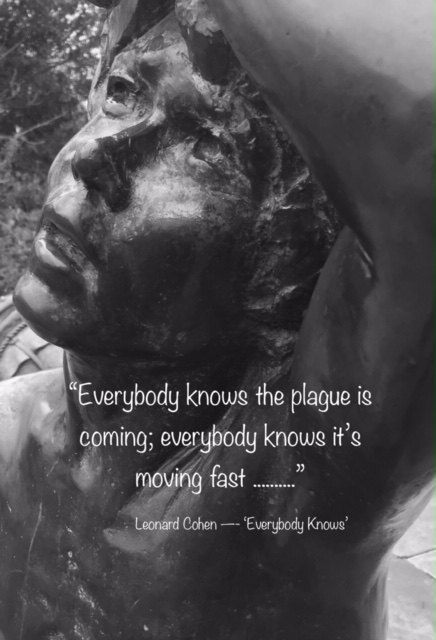 By Daniel McSweeney
By Daniel McSweeney
Leamington Spa, England
With all the unprecedented disruption in our lives, I am recalling when we freely mingled with fellow citizens in crowded streets, shops and pubs both here in England and in our native Canada. It was a time of normalcy when trains, buses and subways were packed with people living ‘normal’ lives.
We all went about our business heading to work, to the gym, the movies, to football games, the doctor’s office and to airports that are now just huge parking lots for idled airplanes. People just weeks ago jumped in their cars to shop at Morrison’s, Tesco or Sainsbury’s without face masks or latex gloves. Most gave no thought whatsoever to checking out the fruit and vegetable section with other shoppers breathing down our necks, even those perhaps with mild sniffles.
On Saturdays we felt perfectly at ease wandering around crowded streets up on the ‘Parade’ and enjoying a cuppa Joe and an apricot croissant at our favorite Nero’s coffee shop. When we walked down the pavement, we didn’t have to give a wide berth to people so we could avoid infecting them; or them infecting us with a terrible illness. Most of us thought our investments were safe; and if we owned a home, its value was reasonably secure in a stable real estate market. We looked forward to welcoming visitors and even visiting London that now is at the UK epicentre of the virus.
Meanwhile, our grown-up children in Canada were settled nicely into their daily routines; kids in daycare or school and supper hour family chats about the upcoming big day of graduation in a crowded auditorium with cameras flashing and wide smiles on the faces of proud parents. Birthdays might even be celebrated at restaurants where candles would be blown out with abandon. “Mom, he spit on the cake,” a younger sister might say. “I don’t want any of his boy germs on my piece.”
And they all would laugh.
It was a delicious time of complacency that has now disappeared as an invisible enemy threatens our health, wealth and well being. Each morning we tune into BBC Breakfast Show to catch the news. At the same time, we embrace a new ritual of visiting websites that record the numbers of the sick and dead from the previous day. Sadly we find ourselves thinking of just numbers rather than the flesh and blood human beings behind them struggling to breathe with the help of ventilators.
The reality is that we are in early days for the spread of the disease; just as we are for the horrendous economic impacts it will have on our lives. It all makes one pine for ‘normal times’ that now seem like a beacon on a distant shore as we sail into the unknown.As I write, more than 41,000 have died; and the general consensus is that the worst is yet to come. On the economic front, industries and businesses are failing; jobs are disappearing and the impact on real estate and investments is dis-heartening. I believe, however, no one really understands the magnitude of the ripple effect into business, industry and the livelihoods of millions of people. Only time will tell.
The cost of keeping us as safe as possible and the economy functional is astronomically expensive.’ While the level of national debts may have once caused us to raise our eyebrows, our heads will soon spin in Beetlejuice style at staggering debt levels in the future. Our leaders though have no choice in the matter and must do whatever it takes to overcome this unprecedented health, social and economic crisis. May these people in leadership roles have the wisdom to make the right decisions at the right time as we sail into the unknown and leave the old ‘normalcy’ we once knew far behind us.
Next blog: They couldn’t catch a break


